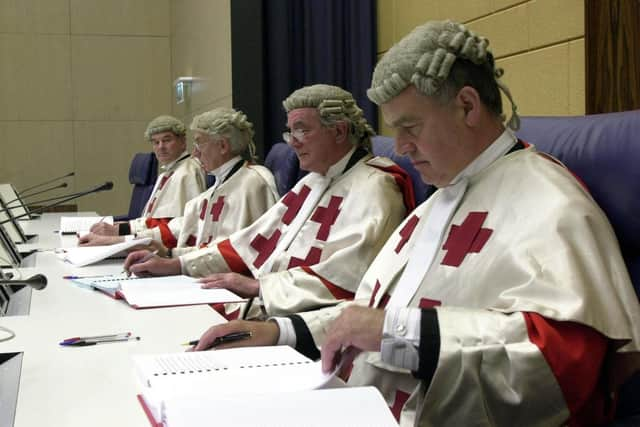Abolishing the Not Proven verdict means survivors will be part of a fairer and clearer process
An early 1700s-created verdict, which arose out of a group of men caught up in a fatal drunken brawl, has left countless victims traumatised, confused and disappointed for centuries.
It may finally disappear under the Criminal Justice Bill which will also introduce greater protection for the anonymity of complainers in sexual offence cases, further safeguarding survivors.
Advertisement
Hide AdAdvertisement
Hide AdMany victims and campaigners can release a long sigh of relief.


Guilty and not-guilty are pretty self-explanatory yet in the murky waters lies ‘not-proven’.
Both not guilty and not proven had led to the same outcome for the accused; acquittal, the accused leaving with all charges dropped.
So what is the difference? In relation to outcome, nothing, however, not proven allows a jury to show they are not fully satisfied with the presentation of a case and could not reach a definitive answer.
In research carried out by University of Glasgow academics Professor Fiona Leverick and Professor, the not proven verdict is said to have been predominantly used in sexual offences cases to allow juries an "easy way out” of making a difficult decision.
In 2016/17, only 39 per cent of rape and attempted rape cases resulted in convictions, the lowest rate for any crime. Nearly 30 per cent of acquittals were not proven, compared with 17 per cent for all crimes and offences.
“Moving to a two-verdict system will mean a clearer, fairer process for jurors and for survivors, eliminating the lack of certainty and ambiguity of not proven and providing a greater sense of closure”, According to Rape Crisis Scotland who have long-campaigned alongside victims for this outcome.
Some in the legal world have argued the verdict offers additional protection to the accused, ensuring they will not be convicted if the jury has doubts.
Advertisement
Hide AdAdvertisement
Hide AdYet, in the eyes of many victims, the danger is this allows for more options to let potential perpetrators walk away and is another way of diminishing their experience.
The legal process for victims still remains relentless and difficult but with steps like this we can be hopeful victims’ voices are being heard and, crucially, change is being made.
Comments
Want to join the conversation? Please or to comment on this article.
